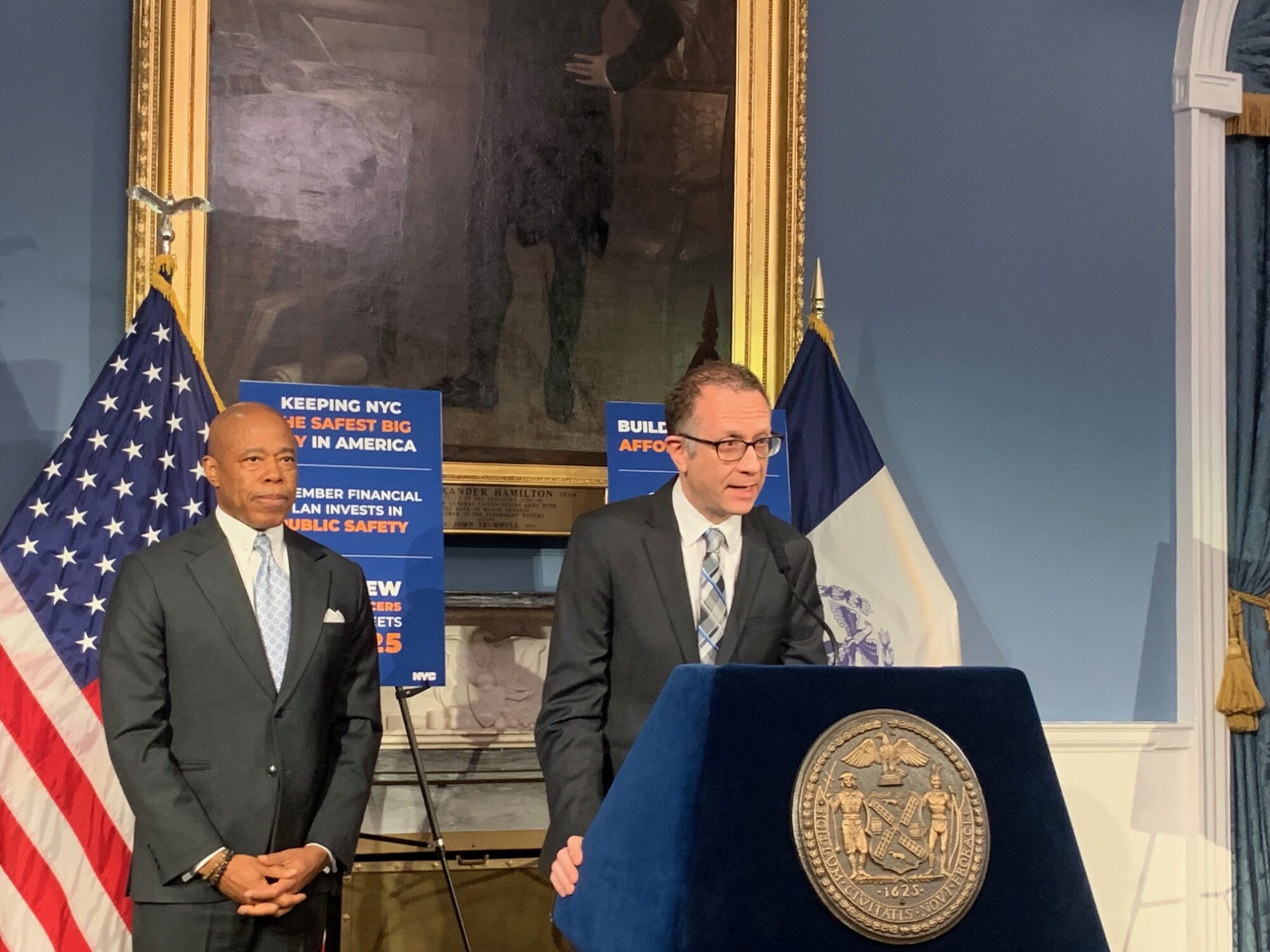After a week of blistering critique from Democratic Congressman Ritchie Torres, Mayor Eric Adams used this week’s off-topic press conference to defend his administration’s policies on crime. While the Bronx representative spent much of the week taking aim at New York state governor Kathy Hochul for “misgovernance” at the state level, he has more recently gone after the mayor as well regarding a string of stabbings in midtown Manhattan that left three people dead last week. In an open letter, Torres accused the city and state governments of “complicity” in the murders due to their failures to keep the suspect – Ramon Rivera, who has a history of mental illness – off the streets. “There are mothers and fathers; daughters and sons; wives and husbands,” Torres wrote, “who will no longer have loved ones because their government fundamentally failed them.”
Eric Adams defended his record and policies on crime, saying that while Torres and others are rightfully angry at the events, “we can’t be revisionist.” As he has done frequently during these briefings, the mayor cited the falling crime stats under his administration. Adams also specifically addressed Torres’ criticism that Rivera was released early on “good behavior,” even though he assaulted a corrections officer while being detained at Bellevue hospital. “When you look at the law, it states your evaluation of good time is after you are sentenced, not while you are a detainee,” the mayor explained. “So while he was a detainee, there was a hearing, and they found him guilty at that hearing and he was penalized because of the action. Then sometime later he was sentenced,” he said. Adams then added that his office is working with his legal team to figure out a way to legally ensure that time off for good behavior counts for a suspect’s time as a detainee as well as their time after sentencing.

The mayor also brought in Brian Stettin, his senior advisor on severe mental illness, to explain what the city is aiming for going forward to address the issue. Stettin blamed “a series of flaws and gaps” in the law to get someone treatment when “they are unable to recognize their own need for it, as painfully obvious as it is to everyone around them.” He spoke of proposed legislation that allows involuntary commitment to include people who “can’t meet their basic human needs of food, clothing, shelter, medical care, and they’re slowly wasting away.” On the medical side, the mayor’s advisor advocated for doctors expanding the factors they consider when evaluating whether a patient is presents such dangers, saying that “it’s also about their medical history, their likelihood to stay engaged with outpatient treatment when they do get released, and the behavior that brought them there in the first place,” beyond their appearance in the moment of an evaluation.
To meet the needs of patients, the mayor once again advocated for increased infrastructure in mental health care, as part of the plan to close Rikers Island and replace it with four smaller jails. “18 to 20 percent of inmates at Rikers Island have severe mental health illness, 51 percent have mental health illness,” the mayor said. “One of those jails should be state of the art mental health facility, where people can get real care.”












